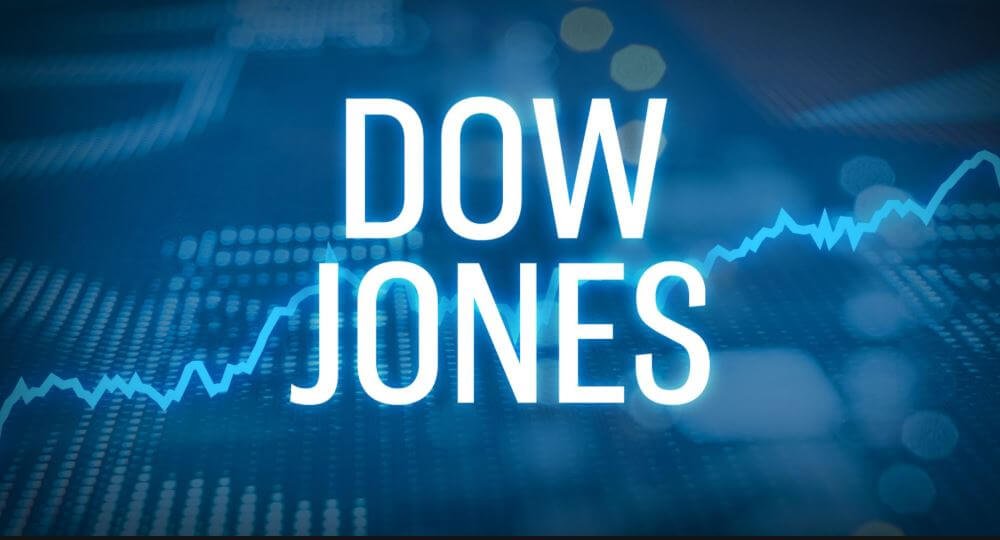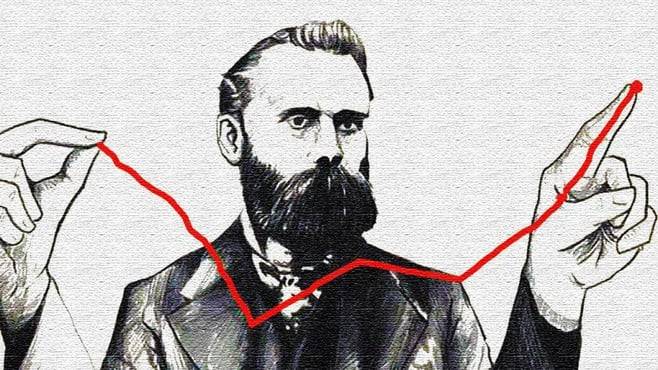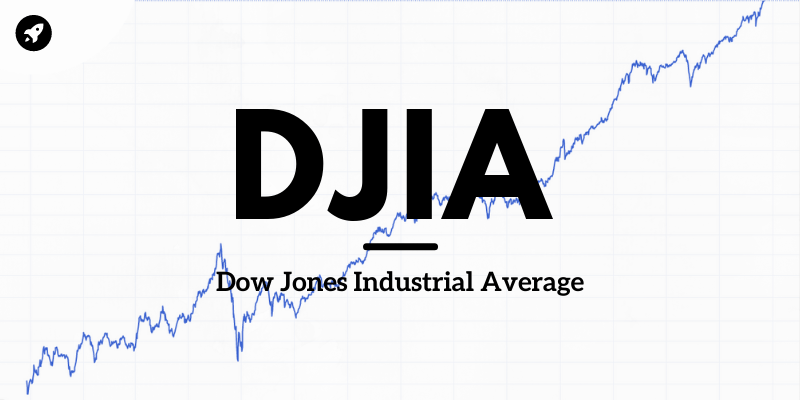Welcome to another post by jackhackmoney.Today we will discuss on Dow Jones and why it’s Important in Stock Market.And we will also discuss on what it is and what are the companies in it.Dow Jones Industrial Average (DJIA), Dow Jones, or simply the Dow is a stock market index of 30 prominent companies listed on stock exchanges in United States.
What Is the Dow Jones Industrial Average (DJIA)?
Dow Jones Industrial Average (DJIA), Dow Jones, or simply the Dow is a stock market index of 30 prominent companies listed on stock exchanges in United States.these 30 large companies are publicly-owned blue chip(“Blue chip” is an informal term for the most reliable and valuable companies on the market.) companies trading on the New York Stock Exchange (NYSE) and Nasdaq.

HISTORY
Why Is It Called Dow Jones?
The Dow Jones Industrial Average (DJIA) is called the Dow Jones because it was developed by Charles Dow and Edward Jones at Dow Jones & Company.
Who Is Dow Jones?
it was developed by Charles Dow and Edward Jones at Dow Jones & Company.two of the three people who founded Dow Jones & Company in 1882. Charles Dow was the Dow in Dow Jones, Edward Jones was the Jones, and Charles Bergstresser was the company’s third founder. In 1889, they went on to found The Wall Street Journal, which remains one of the world’s most influential financial publications.
Dow was known for his ability to explain complicated financial news to the public. He believed that investors needed a simple benchmark to indicate whether the stock market was rising or declining. Dow chose several industrial-based stocks for the first index, and the first reported average was 40.94.
Charles Dow also believed it was possible to predict stock market movements based on the price movements of different types of stocks. According to dow theory, an upward trend in industrial stocks should be confirmed by a similar move up in transportation stocks. Charles Dow created various market averages to more accurately define which way ” industrial stocks” or ” transportation stocks” were headed.
What Is Dow Jones?

Dow Jones & Company is the firm founded by Charles Dow, Edward Jones, and Charles Bergstresser in 1882, not the people themselves. Charles Dow and Edward Jones ran the company themselves in the early years and built a reputation for integrity. When Dow died in 1902, Clarence Barron and Jessie Waldron bought the company, and control eventually passed to the Bancroft family.
What Is the Meaning of Dow in the Stock Market?
The Dow Jones Industrial Average, or the Dow for short, is one way of measuring the stock market’s overall direction. It includes the prices of 30 of the most actively traded stocks. When the Dow goes up, it is considered bullish, and most stocks usually do well. When the Dow falls, it is bearish, and most stocks typically lose money.
The Dow Jones Industrial Average (DJIA)
It is easy to confuse Dow Jones with the Dow Jones Industrial Average (DJIA). Often referred to as “the Dow,” the DJIA is one of the most-watched stock indexes in the world, containing companies such as Apple, Boeing, Microsoft, and Coca-Cola.

The DJIA initially launched with just 12 companies based mostly in the industrial sectors. However, it later grew to include 30 firms. The original companies operated in railroads, cotton, gas, sugar, tobacco, and oil. Industrial companies’ performance is often seen as synonymous with that of the overall economy, making the DJIA a key measure of broader economic health. Although the economy’s health is now tied to many other sectors, the DJIA is still seen as a vital indicator of the U.S. economy’s well-being.
Dow Jones & Company owned the DJIA as well as many other indexes that represent different sectors of the economy. They included the oldest index, the Dow Jones Transportation Average, which tracks 20 transportation companies, such as airlines and delivery services.Another major index is the Dow Jones Utility Average, which tracks 15 U.S. utility stocks.
In 2012, S&P Dow Jones Indices LLC bought the Dow Jones Indexes. S&P Dow Jones Indices LLC is a joint venture between controlling member S&P Global and the CME Group.
In the world of finance, you’ll often hear people ask, “How did New York do today?” or “How did the market perform today?” In both cases, these people are likely referring to the DJIA, as it is the most widely-used index. It is more popular than both the S&P 500 Index, which tracks 500 stocks, and the Nasdaq Composite Index, which includes more than 2,500 U.S. and international equities.
What Companies Are in the Dow Jones?
| Dow Jones Industrial Average Components | ||
|---|---|---|
| Company | Symbol | Year Added |
| American Express Co | AXP | 1982 |
| Amgen | AMGN | 2020 |
| Apple Inc | AAPL | 2015 |
| Boeing Co | BA | 1987 |
| Caterpillar Inc | CAT | 1991 |
| Cisco Systems | CSCO | 2009 |
| Chevron Corp | CVX | 2008 |
| Goldman Sachs Group | GS | 2013 |
| Home Depot Inc | HD | 1999 |
| Honeywell International Inc | HON | 2020 |
| International Business Machines Corp | IBM | 1979 |
| Intel Corp | INTC | 1999 |
| Johnson & Johnson | JNJ | 1997 |
| Coca-Cola Co | KO | 1987 |
| JP Morgan Chase & Co | JPM | 1991 |
| McDonald’s Corp | MCD | 1985 |
| 3M Co | MMM | 1976 |
| Merck & Co Inc | MRK | 1979 |
| Microsoft Corp | MSFT | 1999 |
| Nike Inc | NKE | 2013 |
| Procter & Gamble Co | PG | 1932 |
| Travelers Companies Inc | TRV | 2009 |
| UnitedHealth Group Inc | UNH | 2012 |
| Salesforce Inc | CRM | 2020 |
| Verizon Communications Inc | VZ | 2004 |
| Visa Inc | V | 2013 |
| Walgreens Boots Alliance Inc | WBA | 2018 |
| Walmart | WMT | 1997 |
| Walt Disney Co | DIS | 1991 |
| Dow Inc | DOW | 2019 |
Can You Buy Shares in the Dow Jones Industrial Average?
You can buy shares in the Dow through exchange traded funds (ETFs). However, you cannot invest directly in the Dow Jones Industrial Average because it is just an index.
Limitations of the DJIA
Many critics of the Dow argue that it does not significantly represent the state of the U.S. economy as it consists of only 30 large-cap U.S. companies. They believe the number of companies is too small and it neglects companies of different sizes. Many critics believe the S&P 500 is a better representation of the economy as it includes significantly more companies, 500 versus 30.
Furthermore, critics believe that factoring only the price of a stock in the calculation does not accurately reflect a company, as much as considering a company’s market cap would. In this manner, a company with a higher stock price but a smaller market cap would have more weight than a company with a smaller stock price but a larger market cap, which would poorly reflect the true size of a company.
The Dow is also a price-weighted index, as opposed to being weighted by market capitalization. This means that stocks in the index with higher share prices have greater influence, regardless if they are smaller companies overall in terms of market value. In a price-weighted index, a stock that increases from $110 to $120 will have the same net effect on the index as a stock that increases from $10 to $20, even though the percentage move for the latter is far greater than that of the higher-priced stock. This also means that stock splits can have an impact on the index, whereas they would not for a market cap-weighted index.
How Does the Dow Differ from the S&P 500?
The S&P 500 and DJIA are the two most-watched stock indexes in the U.S. However, these two benchmarks are very different:
- The Dow Jones Industrial average Index tracks 30 large-cap stocks, the S&P 500 tracks the largest 500 stocks in the U.S. market
- The Dow Jones index is price-weighted; the S&P 500 is market-cap weighted
- The stocks in the Dow are chosen by a committee; the stocks in the S&P 500 are added according to a formula
- The Dow Jones industrial average uses a divisor; the S&P 500 is expressed versus a base year